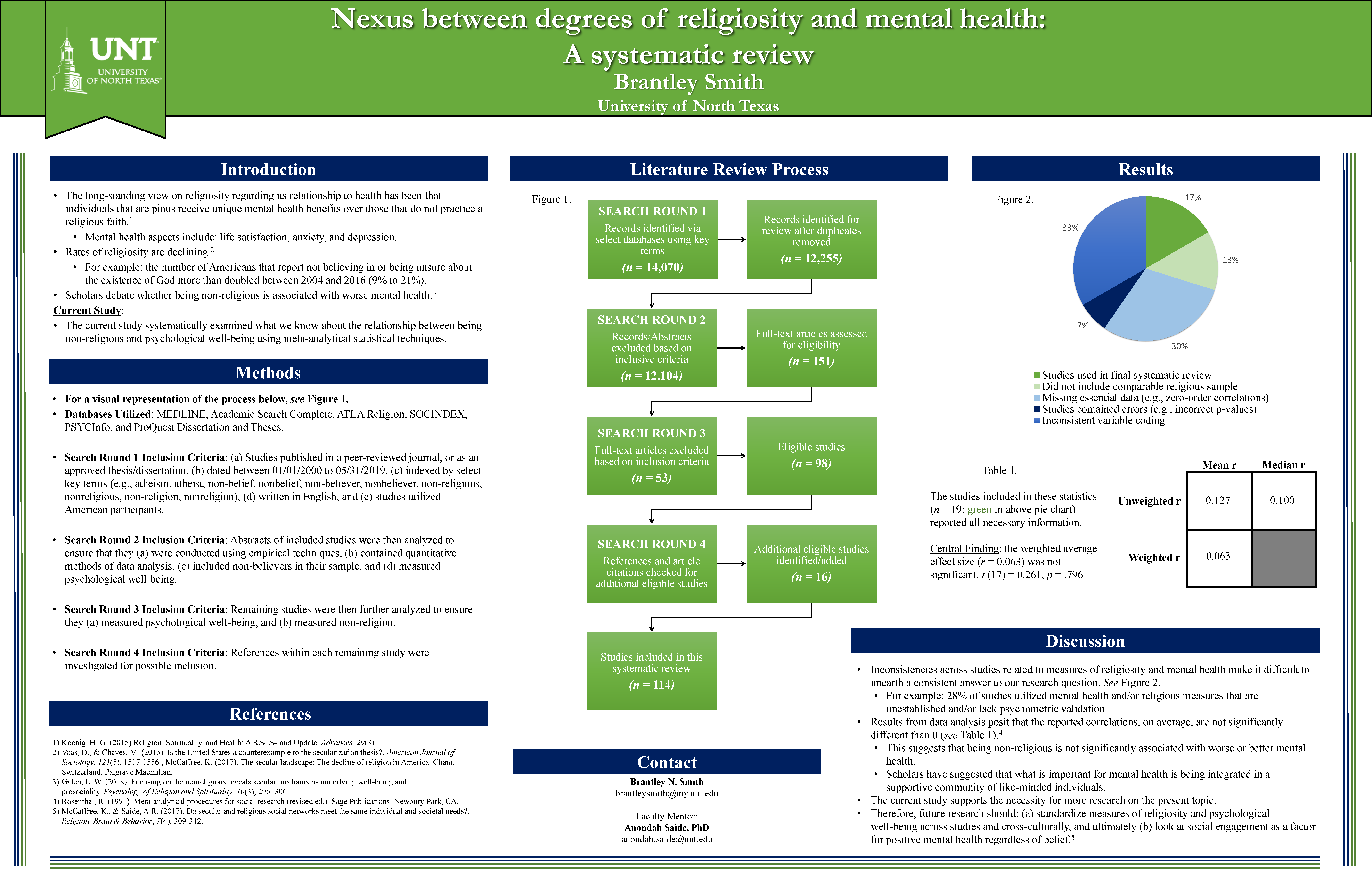First Name:
BrantleyLast Name:
SmithMentor:
Dr. Anondah SaideAbstract:
Religion is considered uniquely beneficial for health; however, religious beliefs and behaviors are receding (McCaffree, 2019). Scholars have become increasingly interested in how individuals and communities are compensating (with secular worldviews) for this change. Understanding whether and how secular worldviews differentially impact psychological health has recently been the subject of much debate among scholars (Galen, 2018). To synthesize the pre-existing research and illuminate gaps in knowledge, we conducted a systematic review of available literature. Database engines (e.g., MEDLINE, Academic Search Complete) were utilized to search for all articles published after 2000 that contained relevant phrases and keywords. 89 studies were included in final analyses because they met the following criteria: included American participants, measured psychological well-being, measured religiosity, and utilized a sample of non-religious individuals. Analyses revealed that identification with a religious orientation did not consistently correspond with individuals having unique mental health status over those with secular belief identification. Much of the scholarship reviewed suggests that mental well-being is instead related to social engagement with one’s community, regardless of the nature of the specific belief system. This presentation will serve to unpack these findings and explore their implications for the relationship between worldviews and mental health.
Poster:





